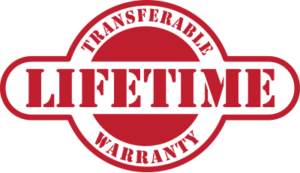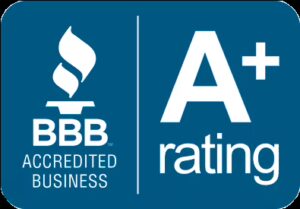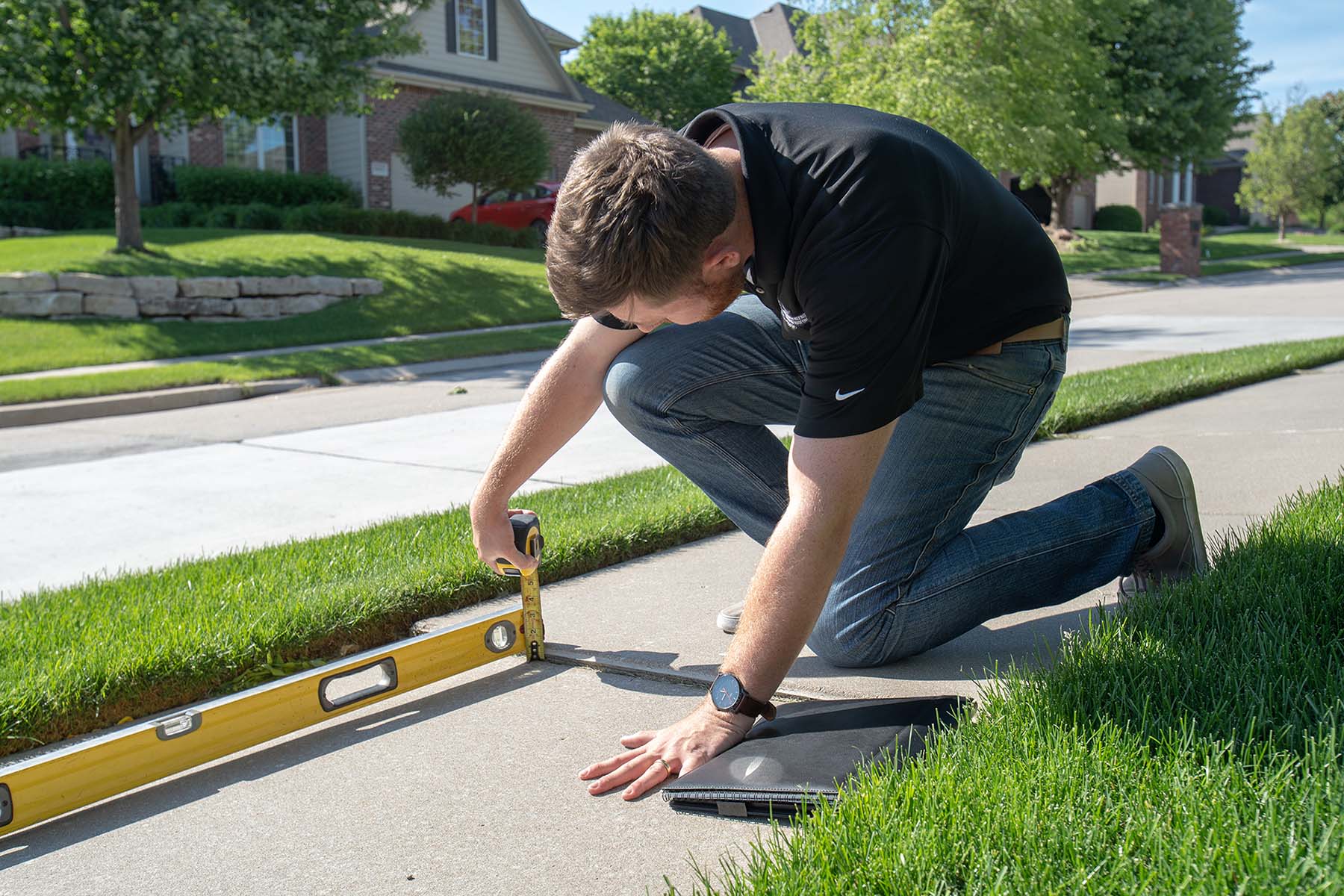Basement mold often starts quietly, with musty odors, faint stains, or damp corners, but it signals deeper issues with moisture and air quality. Understanding how mold takes hold can help you protect your home’s structure, air, and long-term health.



If you've noticed musty odors, dark spots on your basement walls, or patches of mold spreading near the floor, you're not alone. Basement mold is a common issue in homes across Iowa and Missouri, especially in older foundations or homes with block walls. But what many homeowners don’t realize is that mold isn’t just a moisture problem. It’s often a warning sign of pressure, foundation movement, or hidden wall damage.
As seasonal storms raise the water table and clay-heavy soil holds moisture near your foundation, that pressure has to go somewhere. If your basement walls are cracked, bowing, or shifting, even slightly, that pressure forces moisture inward. Mold quickly takes hold on cold concrete, behind insulation, or inside wall cracks that let water and humidity seep in unnoticed.
At Anchored Walls, we don’t treat mold with temporary fixes. We address what causes it. If you’re seeing signs of basement mold, you may be dealing with unstable foundation walls or uncontrolled hydrostatic pressure, and the longer you wait, the worse it gets.
Cracked or Bowing Walls Let Moisture In
When basement walls begin to shift or bow inward, even slightly, they create hairline cracks that allow water vapor and humidity to enter. Over time, these damp areas become the perfect breeding ground for mold, especially if insulation or storage hides the problem.
Hydrostatic Pressure From Saturated Soil
In Iowa and Missouri, heavy spring rains and poor soil drainage increase hydrostatic pressure around the foundation. That pressure pushes moisture through porous concrete or weak wall seams, raising humidity inside your basement and feeding mold growth behind walls, under flooring, or on exposed concrete.
Ineffective Drainage Outside the Home
Clogged gutters, short downspouts, or negative yard grading allow water to pool along your foundation. That constant contact keeps basement walls damp, and if those walls are already shifting or leaning, the intrusion only gets worse.
Lack of Airflow and Drying
Basements are naturally cooler and more enclosed. Without proper stabilization and sealing, the environment stays damp and stagnant, giving mold everything it needs to thrive, especially on block walls, wood framing, or unfinished drywall.
Most homeowners think of mold as a cosmetic issue. But when it starts in the basement, it’s almost always a sign of something deeper and more dangerous. What looks like surface discoloration is often tied to cracked walls, water intrusion, and ongoing foundation stress.
Health Risks That Linger
Mold spores thrive in dark, damp environments. Once airborne, they can aggravate allergies, asthma, and respiratory conditions, especially in children and older adults. If your basement smells musty or feels humid, mold may already be active behind insulation, in carpet, or along framing.
Damage That Spreads
Basement mold doesn’t stay put. It breaks down organic materials like wood, paper, and even some types of insulation. Left unchecked, it can weaken framing, ruin drywall, and make storage areas unusable. Worse, the moisture feeding that mold can lead to rot, settlement, or wider wall damage.
It Hurts Your Home’s Value
If you’re thinking about resale, visible mold or the smell of it will send buyers running. It raises questions about drainage, foundation condition, and air quality. Repairing the root cause now protects not just your structure, but your home’s future on the market.
At Anchored Walls, we know that mold isn’t the problem; it’s the symptom. That’s why we don’t just clean the surface or install a dehumidifier. We correct the conditions that allowed mold to grow in the first place, with targeted repairs designed to restore both strength and dryness to your basement.
Stabilizing Walls and Stopping Leaks
If water is entering through cracked or bowed foundation walls, our first step is structural. We use proven wall stabilization methods, such as steel I-beams, anchors, or carbon fiber reinforcement, to halt further movement and close entry points. Once the walls are stable, we seal cracks to block moisture from seeping in.
Redirecting Water and Controlling Humidity
Our waterproofing systems are designed to move water out of your basement and away from your home’s foundation before it becomes a problem. Whether that’s a drainage system along the interior perimeter or vapor barriers paired with a sump pump, we create a dry environment that mold can’t survive in.
Permanent Protection, Backed by Experience
With over 40 years in the industry, Anchored Walls brings both the tools and the trust to solve your mold issue for good. We don’t offer temporary fixes; we build lasting solutions that keep your home healthy, clean, and dry from the ground up.
If you've noticed musty odors, peeling paint, or visible mold growth in your basement, don’t wait for the problem to spread. Mold isn’t just unpleasant; it’s a warning sign that something deeper is wrong with your foundation or waterproofing system.
At Anchored Walls, we don’t just treat mold; we stop what’s causing it. Our team will inspect your home, identify where moisture is entering, and provide a clear, professional recommendation for repair. With more than 40 years of experience and trusted solutions that last, we’re proud to help homeowners across Iowa and Missouri reclaim their basements.
Request your free inspection today and take the first step toward a dry, mold-free basement.



By submitting this form and signing up for texts, you consent to receive text messages from Anchored Walls at the number provided, including messages sent by auto dialer. These may include messages related to estimates, project updates, appointment scheduling, and promotional offers. Consent is not a condition of purchase. Msg & data rates may apply. Msg frequency varies. Unsubscribe at any time by replying STOP or clicking the unsubscribe link (where available) and no further messages will be sent. Reply HELP for help. Information will not be shared with third parties for marketing or promotional purposes. Privacy Policy